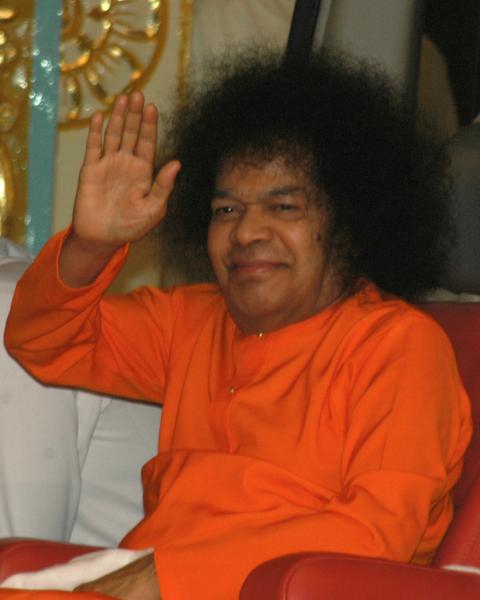
Why should one pray, meditate, contemplate on God or engage in good actions when one is anyway bound to face the consequences of one’s actions? You may not be able to see the transformation that comes within you by your good actions and prayer. You may not even be able to visualise it with your mind. Yet, this transformation in you is sure to attract God’s grace. Take the example of a bottle of pills. You may note the date of expiration mentioned on the bottle as the year 1994. You may find the bottle and its contents intact even in 1999. But this does not mean that the pills will be effective if used later. The pills may be there, but they lose their power after the date of expiry. Likewise, the consequences of one’s actions are inevitable, be they good or bad, but divine grace will let their effects lapse. – Divine Discourse, Sep 03, 1999.
Gedanke für den Tag aus Prasanthi Nilayam vom 21. Dezember 2021
Warum sollte man beten, meditieren, Gott kontemplieren und gute Taten vollbringen, wenn man ohnehin mit den Folgen seines Handelns konfrontiert wird? Ihr seid vielleicht nicht in der Lage, die Veränderung zu sehen, die durch eure guten Taten und euer Gebet in euch eintritt. Ihr könnt sie euch vielleicht nicht einmal mit eurem Verstand vorstellen. Doch diese Veränderung in euch wird mit Sicherheit Gottes Gnade anziehen. Nehmt das Beispiel einer Tablettenflasche. Das Verfallsdatum auf der Flasche ist das Jahr 1994. Vielleicht findet ihr die Flasche und ihren Inhalt auch 1999 noch unversehrt vor. Aber das bedeutet nicht, dass die Pillen auch noch wirksam sind, wenn man sie später einnimmt. Die Pillen sind vielleicht noch da, aber sie verlieren ihre Wirkung nach dem Verfallsdatum. Ebenso sind die Folgen des eigenen Handelns unvermeidlich, seien sie nun gut oder schlecht, aber die göttliche Gnade wird ihre Wirkung vergehen lassen.
Sri Sathya Sai, 13. Januar 1984
© Sri Sathya Sai Media Centre | Sri Sathya Sai Sadhana Trust – Publications Division
